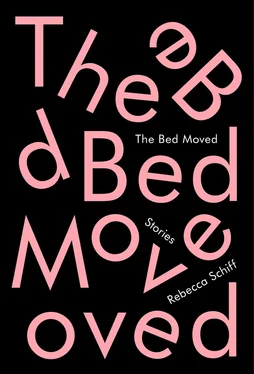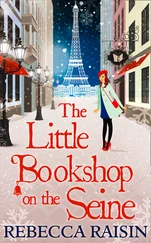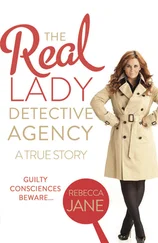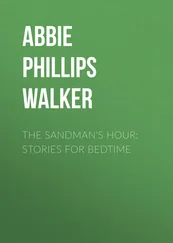I arrived, not tube-topped or jubilant, but cardiganned, dehydrated, on time. I slurped an icy gin. I retold my best stories without remembering why they were important. In “Every Foreign Country I Visit Reminds Me of Long Island,” I forgot to say that’s where I was from. In “The Summer I Spent Working with Pigeons,” I left out what we were trying to understand about the cognition of those birds. In “I Ate a Pot Cookie and Believed Myself to Be Already Dead,” I omitted the emergency room I had taken myself to, where I had asked the other dead people how long they’d been waiting.
“About an hour.”
“Wow.”
My date told me he’d once played a sexually abused kid in a movie. They had told him to look sad but hadn’t explained why. Later, he’d rented it. I felt sorry for him, as if he’d really been abused. I unbuttoned my cardigan. What was the plan — to heal fictional sexual abuse with the promise of actual sexual consent? I detoured into “My Allergies Will Charm You,” and finished up with “Jesus Was the First Guy with a Jesus Complex,” a surprising favorite. We compared hand sizes. Our hands were different sizes. Soon we were negotiating — maybe we should go somewhere, and where should we go? Somewhere.
My date and I didn’t start dating that night. We went to bed instead. Bed was fine, bed was bed, except the time he held his hand over my mouth. That was pretty good. I think it was an accident, though, because I never saw that hand again.
“Xerox that,” I should have said. Make me twenty copies. I’ll tell the pigeon story with all the good parts, with the Skinner boxes, and the pellets, and the time I caught a bird that escaped using just a flashlight and my hand.
THEY SAID keep an eye on it, they said it was nothing, they took its picture, they took a sample, they burned it, they froze it, they biopsied it, they told me to come back in a year, they winced when they saw me coming, they wrote down everything I said or dictated it to a woman who had to be in the room for legal reasons, they wrote me a prescription, they said, “You write fiction, that must be interesting.”
In fiction, it’s never benign.
HE WASN’T LOOKING AT ME. He didn’t know me. I told him I’d had sex in his room once.
“Not with me,” he said.
“A different guy lived here,” I said. “Before you. He collected banjos. The bed was over there. So were the banjos.”
I squeaked open a drawer that was already a little open. It was filled with closed bottles of pills.
“There is a lot of medication in that drawer,” I said.
“I have cancer,” he said. “I have a girlfriend.”
“What kind?”
“The pretty kind. Read my blog,” he said. Over there it said he had cancer, too. It was Halloween. Everyone was smoking his cancer pot and wearing bracelets to support his cancer’s cure. I was sitting on his bed, reading his blog, unfortunately dressed as a pirate. His cancer hadn’t had bracelets or blogs before he had it. It didn’t have cosmetics-sponsored walks. It was in need of a celebrity.
I went to see if the girlfriend was my kind of pretty. Her face didn’t answer the question. She was one of many sporks. Everyone thought they were forks. New sporks kept arriving, hugging each other, whooping. There was a guy dressed as a drive-in movie theater — miniature cars in a miniature parking lot, a projector that beamed a short film onto his chest.
“His birthday’s Halloween,” people said, as though that explained why he had to do this.
There was a bedbug and a bed. There were blinged-out revolutionaries, zombies and robots, apocalyptic survival strategies for men who wouldn’t survive a subway delay. Where were the other pirates? Nobody was even scary.
I couldn’t figure out the cancer guy’s costume. Cancer patient? Flatware? He was wearing gray pajamas. He was now on the bed we’d never had sex on, or, as he probably thought of it, his bed. He took a hit to cool his nausea.
“Captain Hook,” he said, though I had no hook.
“I just started reading ‘Immuno Suppress This, Bitch,’ ” I told him. I held up the glow-lit device that made it possible to read his blog at his party.
“Take a bracelet, Captain,” he said. “Become a fan of me.”
He passed the pipe. I soothed future tumors with it.
—
YOU COULD become fans of the bloggers now, follow them, stream their blogs right into your glow-lit device, blogs about the obsolescence of blogs. Still, I appreciated the form. The guy who debated with himself about whether poor kids should be taught in a semicircle on a rug — the way he’d been taught — or the way where the kids are assigned to homerooms named after the universities he’d gone to. The guy who was trying to get you to compost your dead relatives instead of embalming them. The guy doing Gay Doctors in War Zones with his gay doctor boyfriend. I’d dated the boyfriend briefly, back when he was still bisexual. I’d dated all of them, or wanted to. The blogs were what I had left or what I would never have. I followed.
My cancer patient was blogging every day like it was his last. He dunked himself in icy waterfalls to ring in the New Year. He waded out into the middle of freezing lakes in trunks that showed off his tattoos, his scars. He went whitewater rafting with amputees. He proposed to his girlfriend in song. Everything was recorded, linked to, tweeted, re-tweeted.
But at night, he still had cancer. Steroids kept him awake and chatting with empathetic women. He was cancer-nice to us, or what I later found out was us. The girlfriend was a saint, was his rock, was asleep. I was awake. Julie was awake. We commented on his posts with “Hooray”s for remission, “Oh nooooo!”s for new tumors, “That sucks” for side effects, and he zoomed back and forth between us, frantically emoticonning his approval of our jokes, comforting us when we were rejected by healthy men.
“I’ll kill him,” he wrote. “What do I have to lose?”
“Ha ha,” I wrote. “Ha ha.”
I didn’t know what he had to lose. He didn’t have any money. He was throwing a fund-raiser for his upcoming treatment, and you could buy bracelets off the site, mugs, hoodies. People biked, walked, ran, and sometimes swam in his honor, to send him parasailing with other terminal cases who wanted to challenge death in a non-hospital venue, and he in turn featured them as “Supporters,” “Besties,” or “Awesome Ambassadors of Jamie.” He was his own cause. I liked causes. I was the kind to get particularly attached to a political prisoner, the kind who stood in front of embassies with decade-old pictures of the prisoner, the kind who handed out bullet-pointed info sheets to people just shopping near the embassy. I would go to Jamie’s fund-raiser. I would raise funds.
The problem was that I wasn’t good at asking people for money. I had been a terrible Girl Scout, dawdling around the neighborhood without a uniform, underselling the Thin Mints. My parents wouldn’t buy me the uniform. Without it, a Girl Scout is just a girl. I drafted an email with a link to Jamie’s newest video, an infomercial starring him warning teens to get checked early and often for what he wished he didn’t have.
“He really has cancer!!!” flashed under his face, in case the vicious internet thought he looked too cute for the disease.
I cc’d former bosses, people’s parents, my own two aunts. I mentioned bands that might play the fund-raiser — local bands to fight his non-localized cancer. I sent Jamie twenty dollars. But I couldn’t send the email. I didn’t want him to be another cause people deleted, another petition to not sign.
Читать дальше












